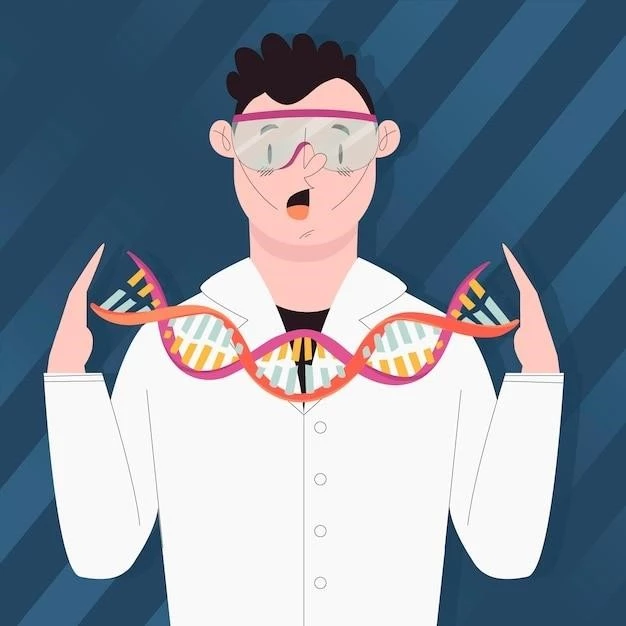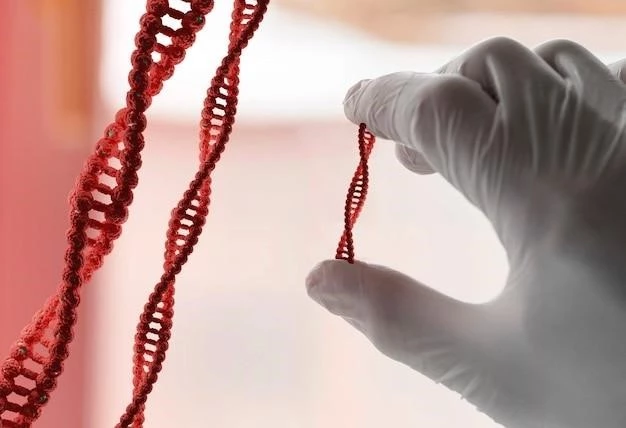Symptoms of Monosomy 2q24
Distinctive facial features and developmental delays
Overview of Monosomy 2q24
Monosomy 2q24 is a rare chromosomal deletion disorder characterized by the loss of genetic material on the long arm of chromosome 2․ This condition can lead to various health and developmental challenges due to the absence of specific genes in the affected region․
Common Symptoms of Monosomy 2q24
Individuals with Monosomy 2q24 may exhibit distinctive facial features٫ intellectual disabilities٫ developmental delays٫ speech and motor skill delays٫ growth delays٫ and heart anomalies․ These symptoms can vary in severity and may require specialized care and support․
Causes of Chromosome 2 Disorders
Genetic mutations and chromosomal abnormalities
Understanding Chromosome 2 Abnormalities
Chromosome 2 abnormalities, such as deletions or duplications, can result from errors during cell division or inherited from parents․ These genetic changes can lead to a range of developmental and health issues depending on the specific genes affected on chromosome 2․
Factors Contributing to Chromosome 2 Disorders
Environmental factors, parental age, and certain genetic conditions can increase the risk of chromosome 2 abnormalities․ Understanding these factors is crucial for early detection and appropriate management of related health issues․
Treatment Options for Monosomy 2q24
Supportive care and early intervention therapies
Current Treatment Approaches
Management focuses on addressing specific symptoms and developmental needs through therapies like speech therapy, physical therapy, educational support, and medical interventions․ A multidisciplinary approach is often utilized to provide comprehensive care for individuals with Monosomy 2q24․
Research on Potential Treatments
Ongoing research explores novel therapies, gene therapies, and targeted interventions to address the underlying genetic mechanisms of Monosomy 2q24 and improve outcomes for affected individuals․ Collaborative efforts seek to advance treatment options and enhance the quality of life for those living with this rare chromosomal disorder․
Genetic Counseling for Chromosome 2 Abnormalities
Family support and informed decision-making
Role of Genetic Counseling
Genetic counselors provide families with information about chromosome 2 abnormalities٫ inheritance patterns٫ and available testing options․ They offer support٫ guidance٫ and resources to help individuals make informed decisions about their health and family planning․
Benefits of Genetic Counseling
Genetic counseling empowers families by providing education, emotional support, and guidance on family planning decisions․ It helps individuals understand the implications of chromosome 2 abnormalities, promotes informed choices, and facilitates access to appropriate healthcare resources for improved outcomes․
Impact of Monosomy 2q24 on Development
Cognitive delays and physical challenges
Developmental Challenges
Children with Monosomy 2q24 may face delays in speech development٫ motor skills٫ and intellectual abilities․ The absence of certain genes in the affected chromosome region can contribute to these developmental challenges٫ requiring early interventions and tailored support strategies․
Supportive Interventions
Early intervention programs, specialized therapies, educational support, and developmental monitoring play a critical role in helping individuals with Monosomy 2q24 reach their full potential․ Tailored interventions and family-centered care can address the unique needs associated with this chromosomal disorder․

Research Advances in Chromosome 2 Conditions
Emerging therapies and genetic studies
Current Research Findings
Recent studies have identified new genes linked to chromosome 2 disorders٫ shedding light on the underlying mechanisms and potential therapeutic targets․ Advances in genomic technologies continue to enhance our understanding of these conditions٫ fostering the development of more precise diagnostic and treatment strategies․
Potential Future Directions
Future research is focused on personalized therapies, gene editing technologies, and targeted interventions for chromosome 2 abnormalities․ Collaborative efforts aim to improve outcomes, enhance quality of life, and advance precision medicine approaches tailored to the unique genetic profiles of individuals with these chromosomal conditions․
Coping Strategies for Families Affected by Monosomy 2q24
Emotional and community support
Emotional Support
Families impacted by Monosomy 2q24 benefit from counseling, support groups, and mental health services to navigate the challenges associated with the condition․ Building a strong support network and accessing emotional resources can help families cope with the emotional impact of the diagnosis and caregiving responsibilities․
Community and Peer Support
Connecting with local organizations, online communities, and peer support networks can provide families of individuals with Monosomy 2q24 a sense of belonging, shared experiences, and valuable resources․ Peer interactions and community engagement offer practical assistance, emotional validation, and a source of strength throughout the journey of raising a child with this chromosomal disorder․
Importance of Early Detection
Early diagnosis of chromosome 2 deletions enables timely interventions, access to support services, and coordinated care planning․ Prompt identification of genetic abnormalities plays a crucial role in optimizing outcomes, facilitating early interventions, and improving the overall well-being of individuals affected by these chromosomal conditions․
